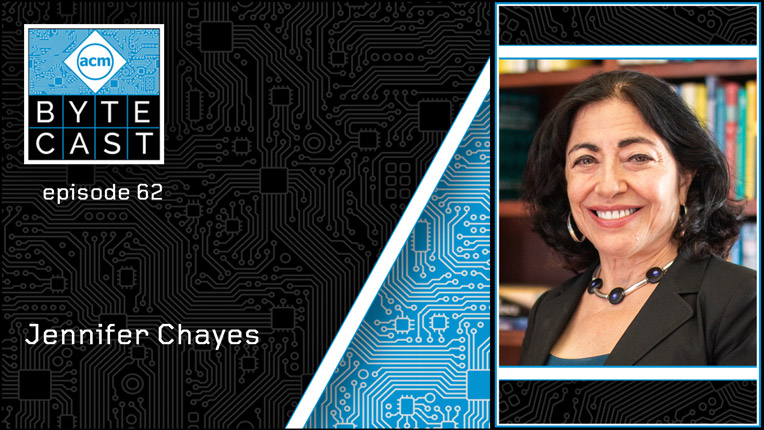Ep62: Jennifer Chayes
In this episode of ACM ByteCast, Bruke Kifle hosts ACM Fellow and ACM Distinguished Service Award recipient Jennifer Chayes, Dean of the College of Computing, Data Science, and Society at UC Berkeley. Before joining Berkeley, she co-founded the Theory Group at Microsoft Research Redmond and later founded and led three interdisciplinary labs: Microsoft Research New England, New York City, and Montreal. Her research areas include phase transitions in CS, structural and dynamical properties of networks including graph algorithms, and applications of ML. Jennifer is one of the inventors of the field of graphons, widely used for the ML of large-scale networks. Her recent work includes generative AI and ML theory in areas like cancer, immunotherapy, climate change, and ethical decision making, with more than 150 scientific papers authored and 30 patents she co-invented. Her honors and recognitions include the Anita Borg Institute Women of Vision Leadership Award, SIAM’s John von Neumann Lecture Award (the highest honor bestowed by SIAM), and election to the American Academy of Arts and Sciences and the National Academy of Sciences. She serves on numerous boards and advisory committees and has served on the ACM A.M. Turing Award Selection Committee.
Jennifer shares her early experience as the child of Iranian immigrants, dropping out of high school and learning to embrace risk. She describes her journey from being a pre-med biology major to a PhD in mathematical physics, and how her love of theory and an interest in interdisciplinary work led her to start a Theory Group at Microsoft Research. She also relates how her later interest in economics and game theory led to the founding of Microsoft Research New England, and highlights some of her work there. She and Bruke talk about the challenges she has navigated throughout her career, and how that has influenced her approach to interdisciplinary research. Jennifer also shares her vision and goals for the College of Computing, Data Science, and Society at UC Berkeley. Finally, she opines on the skills needed for future leaders in computing, some of the urgent problems of our time, and offers some advice to young computing professionals.
